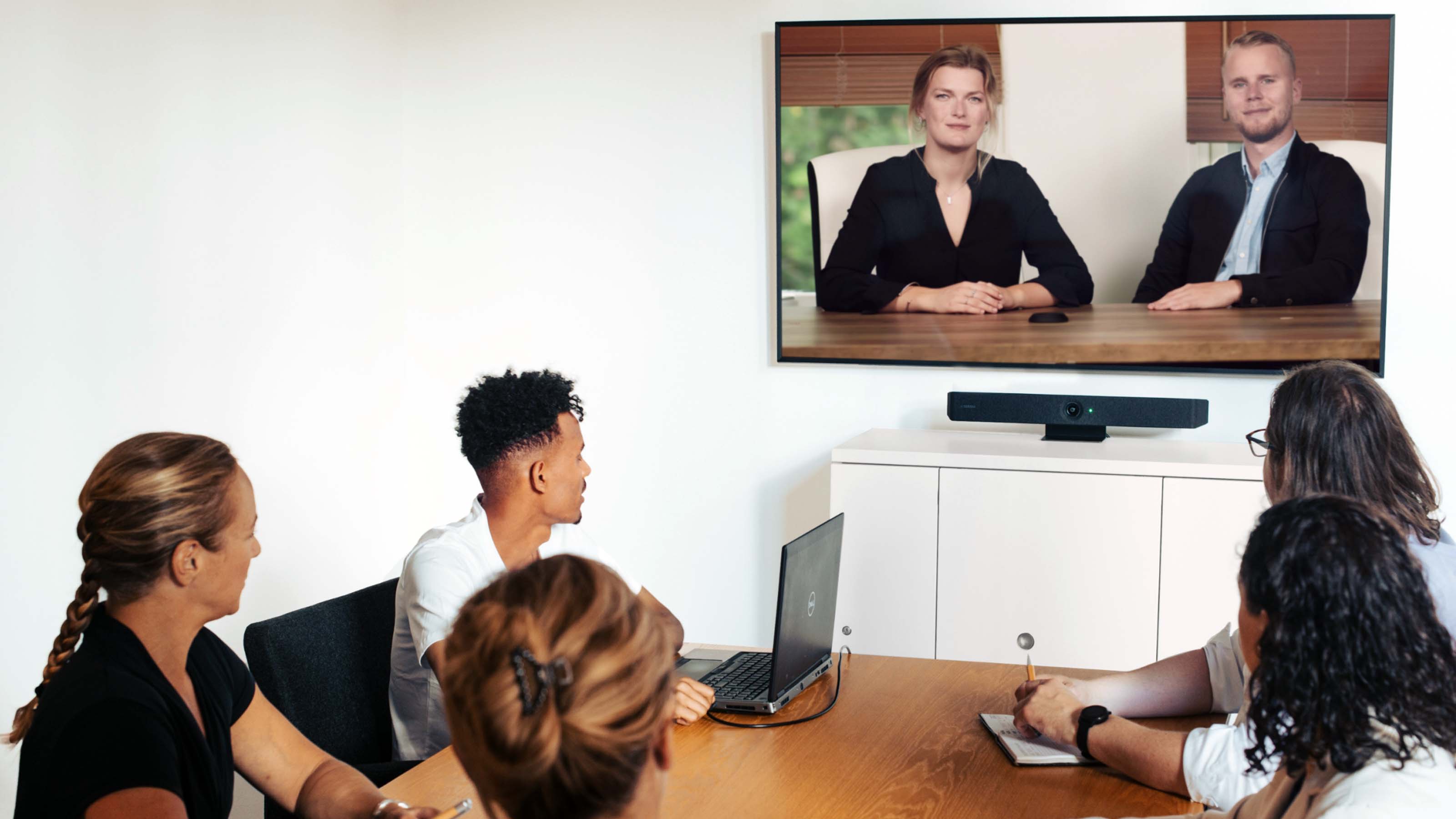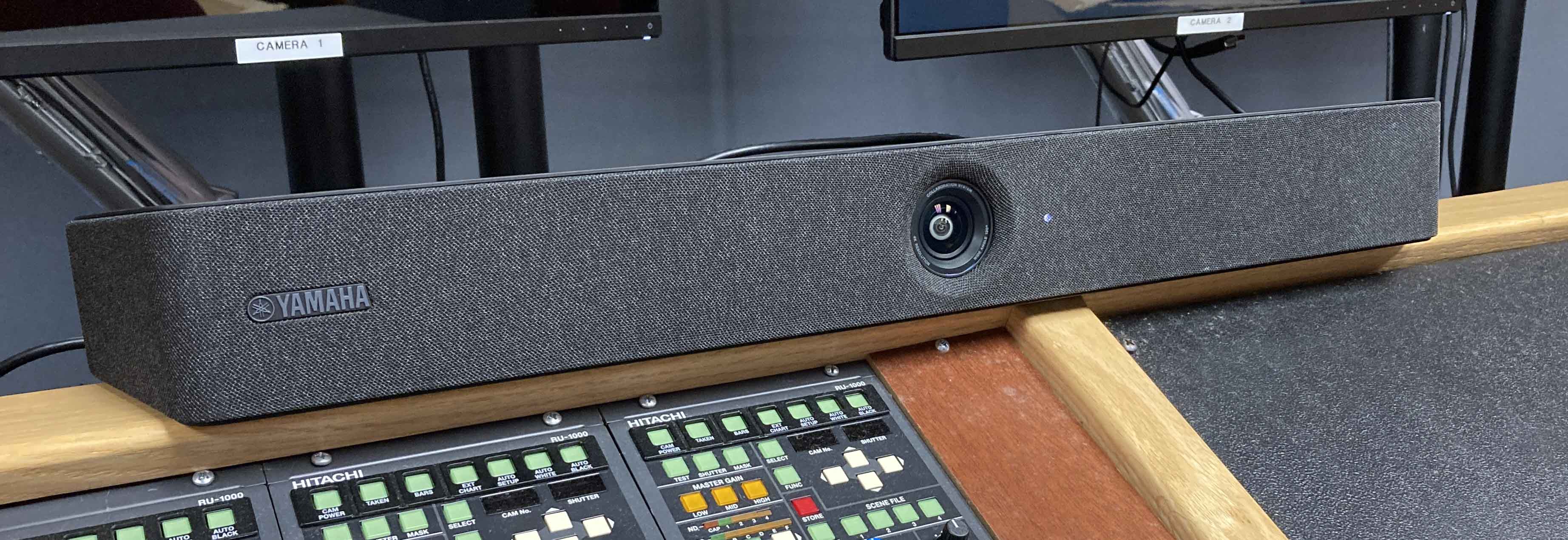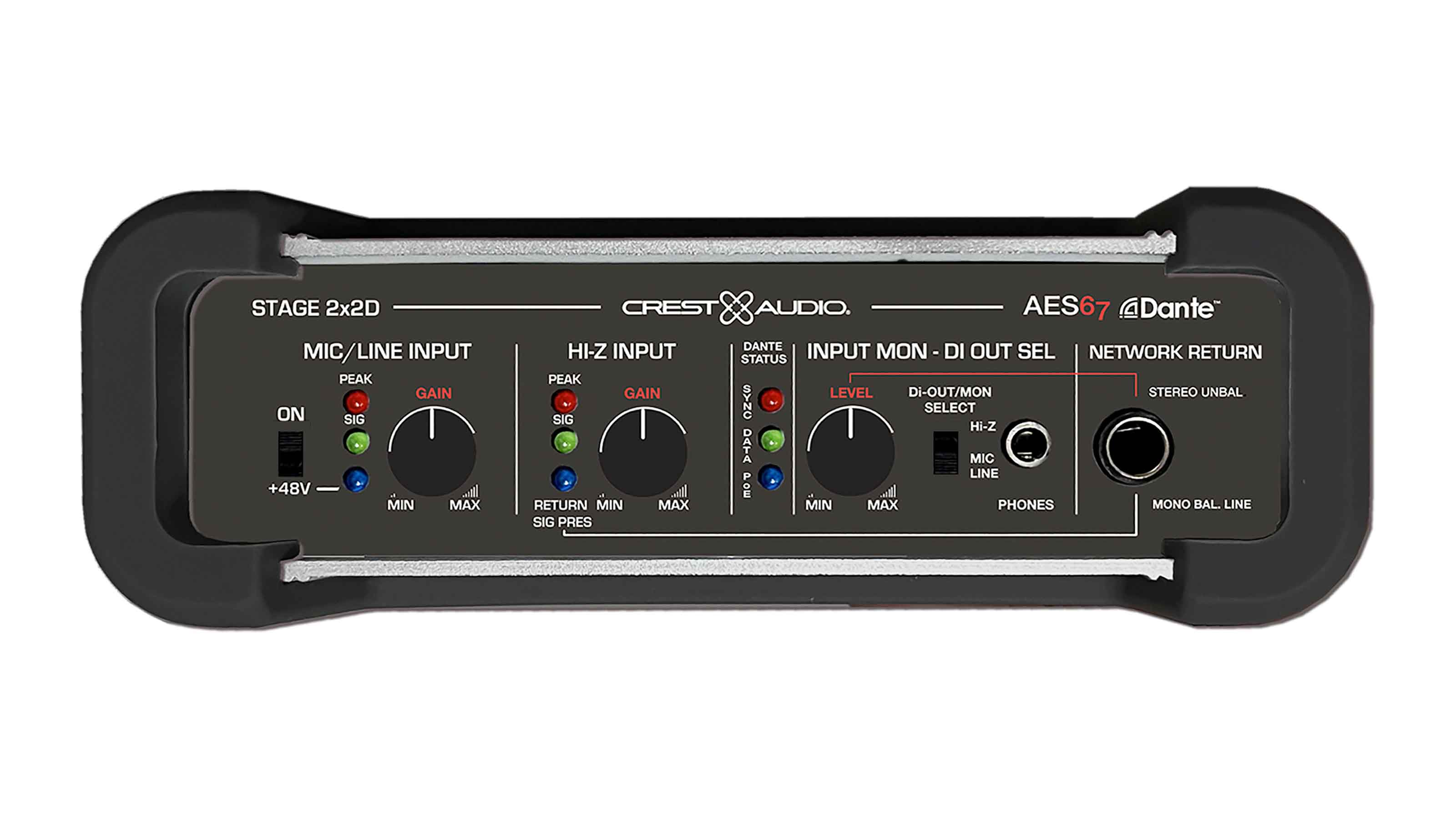Product Review: Follow You, Follow Me
The Yamaha CS-800 Video Soundbar is ready for your next meeting.

Whenever a meeting is planned in more than one place, the participants in all the locations must be able to easily see and hear everyone. Yamaha Unified Communications offers the CS-800 Video Soundbar for both. Weighing in at less than 4 pounds, the 24.4-inch unit is small enough for transport and robust enough to cover a 120-degree field of view in 4K at 30 fps, as well as up to 19.7 feet with its microphone.
There's a lot of technology behind the CS-800's performance. When people walk into the room, the CS-800 has an auto wake-up function that turns the system on and starts the meeting. Its 4K camera (with 8-megapixel CMOS sensor) offers a 5x zoom to capture the room’s occupants in a close-up or wide shot. With Yamaha’s Smart Framing technology, speaking people are recognized and framed without input from a camera operator.
Using Yamaha's new SoundCap Eye—AI that uses Face Focus Beamforming and other technologies for positioning information—the Yamaha CS-800 camera and microphone pick up the speaker’s location and tracks their movements, all while blocking out unwanted noises. For audio, SoundCap Eye finds the person speaking and reduces background noise with the "hexa-microphone." If there are moments of silence, the Human Voice Activity Detection (HVAD) technology temporarily silences the microphone until someone speaks (instead of raising the background ambience).
Making Adjustments
If you're using the CS-800 on a table, it's easy to attach the table stand with two screws. There's also an included wall mounting bracket, or you can purchase the monitor mounting bracket (sold separately). The included HDMI cable connects the CS-800 to a monitor, while the USB-A to USB-C cable (also included) connects the CS-800 to your computer. Power the video soundbar via the AC cable, then configure the remote to the Yamaha and link it to your computer via Bluetooth.

The CS-800's centrally located video camera pans and tilts with the speaker’s movements. A small LED indicator between the speakers illuminates either white, blue, green, or red, depending on the status. The rear features a factory reset button and an AC adapter input, along with the USB-C and HDMI ports.
[Review: 3 Talking Points for the Jabra Speak2 55 Speakerphone]
A daily selection of the top stories for AV integrators, resellers and consultants. Sign up below.
Moving clockwise around the round remote control, starting to the right of the Yamaha logo, is the power button, zoom rocker switch, camera preset buttons, Smart Framing on/off button, speaker volume rocker switch, and microphone mute. The center directional pad provides access to device pairing and the settings menu.
Once the menu is accessed, you have several options. The menu opens on the Meeting area, with the CS-800’s 4K camera displaying what the video soundbar sees. You have dropdown options of Horizontal Angle and Max Distance, which help set the camera parameters. The Smart Framing icon offers a choice of Individual, Group, or Speaker tracking. The Camera Preset menu allow you to set specific framing for certain areas of the room. The Microphone menu allows you to adjust Face Focus, Beamforming, and Self Silence, while the Speaker menu has Self and Volume Balance options. Select the last option, Bluetooth, to pair the unit.
Setup of the Yamaha CS-800 is straightforward. In fact, the most difficult part of the setup was accessing the button battery compartment. Once opened and the batteries were installed, pairing was quicky achieved. The HDMI connected from the back of the CS-800 to our large 55-inch monitor, while a USB-C cable end attached to the back of the unit and the USB-A cable end connected to my computer. Having a MacBook Pro, I would have preferred two USB-C ends on the cable, but I used an adapter to convert the USB-A to a USB-C.
Right on Track
Once configured, I accessed the setting menu. Before trying the video soundbar for a meeting, I wanted to see how it worked with just me. A green square surrounded my face and tracked me as I moved. As the only person in our university’s TV studio control room, I selected "Individual" in Smart Framing. As expected, the green box tracked with me.
Even though I was alone, I selected "Group" and yellow boxes surrounded the faces of students on the wall posters behind me. This was impressive. The Yamaha CS-800 recognized faces on the posters and didn’t select the non-human items in the posters. If the posters moved, I’m sure the CS-800 would track them. Of course, if the posters did move, I would have other issues.

Still in testing mode, I moved left and right, got up and slowly paced the perimeter of the room. My slow left and right movements were easily tracked, but when I got up, although slowly, the camera lagged for a moment before catching up. If I moved too quickly, the screen image would “cut” to me in the new position.
Much like a director determining that the movement of the actor wasn’t important, I guess the CS-800's AI determined that seeing the person in their new location was more important than watching them get there. I suppose I can't be too critical of the CS-800; camera operators often lag in their movement if they don’t know where the speaker is moving next. It's still amazing that AI is determining what to do—and is correct most of the time.
My next test was to use the Yamaha CS-800 during a meeting in our medium-sized conference room, with 20 people in attendance and two joining remotely via Zoom. As I mentioned, the video soundbar is extremely portable and can be carried and setup in the new room. It was ready to go in less than two minutes.
In this real-world situation, the CS-800 was an amazing success. The speaker was easily tracked—and when other faculty or staff in the meeting spoke, the CS-800 had no trouble finding who was speaking. The two people on Zoom said they could see who was asking the questions better than the usual center-mounted TV monitor camera, and the sound was “amazingly good for a Zoom meeting.”
The Yamaha CS-800 is a perfect “hybrid” balance of AI, video, and audio technology in a video soundbar. Easily moved and quickly connected, it has a small footprint and is very versatile. Its AI technology makes the speaker the star of the show (or presentation), eliminates the need of a camera operator or sound technician, and delivers solid 4K video and pristine sound.
Chuck Gloman, Associate Professor, has more than 40 years of experience as a producer and director of photography with more than 900 TV commercials, 250 corporate videos, and 100 documentaries to his credit. His films have aired on HBO, Cinemax, and network television. He is the author of Placing Shadows: The Art of Video Lighting, 2nd Edition (Focal Press: 2000); No Budget Digital Filmmaking (McGraw-Hill: 2002); 303 Digital Filmmaking Solutions (McGraw-Hill: 2002); 202 Digital Photography Solutions (McGraw-Hill: 2003); Placing Shadows: The Art of Video Lighting, 3rd Edition (Focal Press: 2005); Scenic Design and Lighting Techniques (Focal Press: 2006); Working with HDV (Focal Press: 2006); Placing Shadows: The Art of Video Lighting, 3rd Edition (translated in Japanese Language Focal Press: 2007); and Placing Shadows: The Art of Video Lighting, 3rd Edition (translated in Chinese Language Focal Press: 2017). He has published more than 500 articles.

